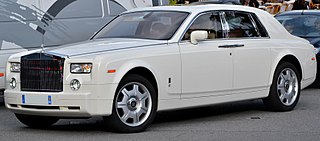Related Research Articles

Fashion is a popular aesthetic expression at a particular period and place and in a specific context, especially in clothing, footwear, lifestyle, accessories, makeup, hairstyle, and body proportions. Whereas a trend often connotes a peculiar aesthetic expression and often lasting shorter than a season, fashion is a distinctive and industry-supported expression traditionally tied to the fashion season and collections. Style is an expression that lasts over many seasons and is often connected to cultural movements and social markers, symbols, class, and culture. According to sociologist Pierre Bourdieu, fashion connotes "the latest fashion, the latest difference."

Pricing is the process whereby a business sets the price at which it will sell its products and services, and may be part of the business's marketing plan. In setting prices, the business will take into account the price at which it could acquire the goods, the manufacturing cost, the marketplace, competition, market condition, brand, and quality of product.
In marketing, brand management begins with an analysis on how a brand is currently perceived in the market, proceeds to planning how the brand should be perceived if it is to achieve its objectives and continues with ensuring that the brand is perceived as planned and secures its objectives. Developing a good relationship with target markets is essential for brand management. Tangible elements of brand management include the product itself; its look, price, and packaging, etc. The intangible elements are the experiences that the target markets share with the brand, and also the relationships they have with the brand. A brand manager would oversee all aspects of the consumer's brand association as well as relationships with members of the supply chain.
Prada S.p.A. is an Italian luxury fashion house that was founded in 1913 by Mario Prada. It specializes in leather handbags, travel accessories, shoes, ready-to-wear, perfumes and other accessories.

In economics, a luxury good is a good for which demand increases more than proportionally as income rises, so that expenditures on the good become a greater proportion of overall spending.

Private label products are those manufactured by one company for sale under another company's brand. Private-label goods are available in a wide range of industries from food to cosmetics. Private label brands managed solely by a retailer for sale in a specific chain of stores are called store brands.
Lane Crawford is a retail company with speciality stores selling luxury goods in Hong Kong and Mainland China.
Masstige is a marketing term meaning downward brand extension. The word is a portmanteau of the words mass and prestige and has been described as "prestige for the masses".

Shiseido Company, Limited is a Japanese multinational personal care company, that is a skin care, hair care, cosmetics and fragrance producer. It is one of the oldest cosmetics companies in the world. Founded in 1872, it celebrated its 140th anniversary in 2012. It is the largest cosmetic firm in Japan and the fifth largest cosmetics company in the world. Shiseido is only available at cosmetic counters at selected department stores or pharmacists. The company owns numerous brands and subsidiaries worldwide, in addition to its founding label. The company is headquartered in Tokyo, and is traded on the Tokyo Stock Exchange.
The Izod Corporation is an American mid-range clothing company that produces dressy-casual clothing, sportswear for men, as well as footwear and accessories. It is part of PVH, forming part of its Heritage Brands division along with Van Heusen, Arrow, Warner's, Olga, True & Co., and Geoffrey Beene. It is perhaps best known for its short-sleeved piqué polo shirt, formerly produced by Lacoste and featuring the Lacoste crocodile on the left breast, now replaced with an embroidered crest. One variation is the "IZ" patch instead of crest. Other Izod classics include the Harrington jacket G-9 model, also v-neck and cardigan sweaters. Today, the Izod brand competes most directly with the similarly-priced Chaps brand owned by Ralph Lauren Corporation, while competing more indirectly on the lower end with U.S. Polo Assn. and on the higher end with Nautica.
Mulberry is a luxury fashion company founded in the United Kingdom in 1971, known internationally for its leather goods.
Counterfeit consumer goods are goods, often of inferior quality, made or sold under another's brand name without the brand owner's authorization. Sellers of such goods may infringe on either the trademark, patent or copyright of the brand owner by passing off its goods as made by the brand owner. Counterfeit products made up 5 to 7% of world trade in 2013, and in 2014 cost an estimated 2.5 million jobs worldwide, with up to 750,000 jobs lost in the U.S. About 5% of goods imported into the European Union in 2013 were fakes, according to the OECD.
S. Kumars Nationwide Limited or SKNL is a textile and apparel company with expertise in multi-fibre manufacturing presently under liquidation. The company has extended its presence in multiple product categories from fabrics to apparels and home textiles.
The market for luxury goods in China composes a significant proportion of all luxury goods sales worldwide. In 2012, China surpassed Japan as the world's largest luxury market.
Klaus Heine is a lecturer in luxury marketing, luxury brand management, brand personality and brand identity at the Technical University of Berlin and works as an independent consultant specializing in luxury brand management.
The country-of-origin effect (COE), also known as the made-in image and the nationality bias, is a psychological effect describing how consumers' attitudes, perceptions and purchasing decisions are influenced by products' country of origin labeling, which may refer to where: a brand is based, a product is designed or manufactured, or other forms of value-creation aligned to a country. Since 1965, it has been extensively studied by researchers.
Fashion tourism is a niche market segment evolved out of three major sectors: Creative Tourism, Cultural Tourism and Shopping Tourism. Fashion Tourism can be defined as “the interaction between Destination Marketing Organizations (DMOs), trade associations, tourism suppliers and host communities, with people travelling to and visiting a particular place for business or leisure to enjoy, experiment, discover, study, trade, communicate about and consume fashion.”

L2 Inc is a subscription research and business intelligence firm that benchmarks the digital competence of consumer brands. The company evaluates more than 2,200 brands annually, analyzing their website, e-commerce, digital marketing, social media, and mobile executions, and then ranks within each industry. The research L2 publishes is aimed at CMOs and senior-level digital marketing leaders to provide marketing strategy guidance.
Marketing strategies in the modern era of the information age increasingly revolve around Hype. Hype has emerged as a marketing strategy due to the proliferation of social media.
References
- ↑ Official website
- ↑ http://brandstrategy.wordpress.com/ MarketingWeek Brand & Business Blog
- ↑ WSJ:"Luxury-Goods Makers Brandish Green Credentials"
- ↑ WWD:"Luxury and Necessity"
- ↑ The Future of Work